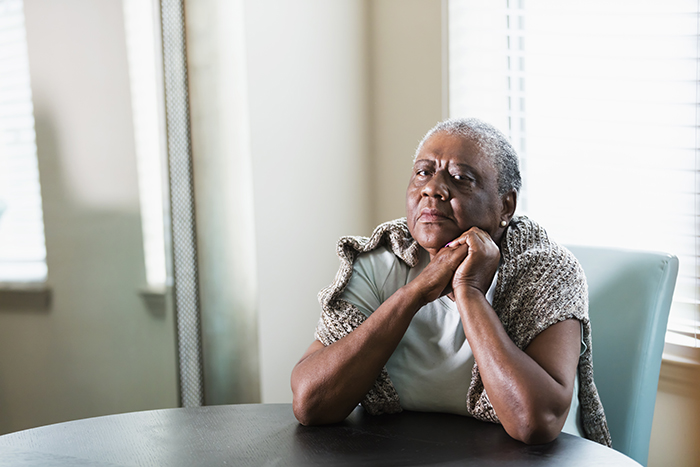Don’t Let Chronic Illness Get the Better of You

As the population ages, more and more of us are living with chronic illness. Cancer. Diabetes. Parkinson’s. Crohn’s. Cardiovascular disease. A diagnosis of a lifelong condition can be devastating.
“People imagine what their lives and retirement are going to be like, and then suddenly that gets turned on its head,” says Dr. Elizabeth A. Crocco, a geriatric psychiatrist with the University of Miami Health System. “All those dreams have to be put aside, and they have to adjust to a new life.”
Dealing with that volatile cocktail of anger, disbelief, fear, and frustration is essential to management of any disease.
Yet, adapting to the new normal is no easy matter either.
Even physicians — from oncologists to psychiatrists to general practitioners — must figure out ways to smooth their patients’ transition.
“I tell our students that the majority of what we treat are chronic illnesses. We manage, we don’t cure,” Crocco adds.
According to the National Health Council, incurable and ongoing diseases affect more than 150 Americans, with 81 million having multiple conditions. Some diseases are more common than others. For example, 85.6 million people in the U.S. are living with some form of cardiovascular disease. About 29 million have been diagnosed with diabetes and 24 million with arthritis. Another 14.5 million have a history of cancer or are living with cancer. Other well-known chronic conditions rack up smaller numbers but are no less debilitating — 1 million living with HIV and 1 million with multiple sclerosis.
And it’s not just the 65-and-over set who find their activities limited because of health or mental conditions. While about half of all adults have a chronic condition, about 8 percent of children ages 5 to 17 are affected by at least one chronic disease, according to the National Center for Health Statistics.
“It’s not just older people,” says Dr. Crocco, “but also the middle-aged. We’re not living healthy lives, so we’re seeing people develop some conditions like diabetes at a younger age.”
Adjusting to an unexpected health situation can be demoralizing and isolating.
For most patients, the illness exacts a heavy toll, both physical and mental. Those with chronic illnesses are two to three times more likely to suffer from depression. They also experience more anxiety and stress, opting for a pessimistic outlook that often affects both their choices and relationships.
“The greatest fear people express is about their loss of independence, even more so than death,” Dr. Crocco says. “They worry about being a burden to their families, too. They don’t want to put their loved ones through an ordeal.”
The prognosis for the disease also plays a factor in how patients react to the symptoms. If a patient has diabetes, she can control it with diet and lifestyle changes. “These patients tend to have a more optimistic outlook,” Dr. Crocco adds. “They know they can do something about it.”
On the other hand, those who suffer from a progressive degenerative disease — people with Parkinson’s, say, or multiple sclerosis — may feel despair because there’s little they can do to change the outcome. “Obviously, they’re concerned about how they’ll end up,” she adds.
Studies have found that not everyone reacts in the same way to a chronic diagnosis, however. While some sink into despondency, others push forward after the initial feelings of disbelief and hopelessness. “Those people who have never had to deal with illness have bigger problems,” Dr. Crocco says. “This is especially true for younger people, patients in the prime of their lives, who suddenly have to face something they’ve never experienced, and that will change their future.”
Some patients also have developed better coping skills over time — what the UHealth psychiatrist calls “personality traits” — that prompt them to find the proverbial silver lining.
“Those who ask themselves, why me, who can’t get over that feeling, end up suffering more,” she says. “But the ones who accept the fact that they’ve got a disease and ask themselves, what am I going to do about it, do OK.”
Dr. Crocco has several suggestions for patients determined to make the best of a chronic illness diagnosis:
- Determine what you can do to improve your life. Will diet help? Exercise? Other lifestyle changes, such as quitting smoking? Are there medical tests to undergo regularly? “Start with the easy and smallest changes and work your way up,” she says.
- Be realistic. A chronic illness means there are no cures, only possibilities of management. Focus on the possible positive outcomes of treatments and how you can achieve these.
- Manage pain. There are now several effective ways to help a patient deal with chronic pain, from medications to acupuncture to behavior cognitive therapy. Consider visiting a pain specialist, such as Dr. Dennis J. Patin, a UHealth anesthesiologist who is also a pain medicine specialist.
- Seek help. “There are many groups out there that can be helpful,” Dr. Crocco says. “They not only provide support, but they also educate you.” If you’re not into group settings, look for a therapist that specializes in chronic illness.
- Don’t blame yourself for not beating your illness or powering through your symptoms. It’s not a personal failure or a character defect.

Ana Veciana-Suarez, Guest Columnist
Ana is a regular contributor to the University of Miami Health System. She is a renowned journalist and author, who has worked at The Miami Herald, The Miami News, and The Palm Beach Post. Visit her website at anavecianasuarez.com or follow @AnaVeciana on Twitter.
Tags: chronic illness, Dr. Elizabeth Crocco, healthcare in Miami
